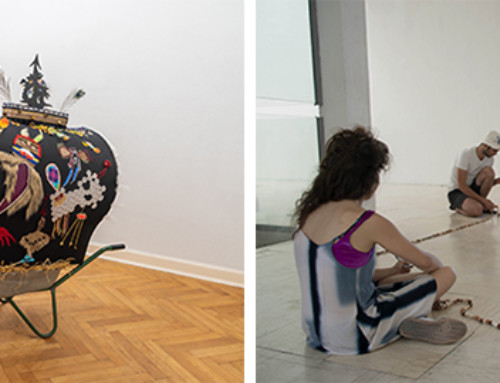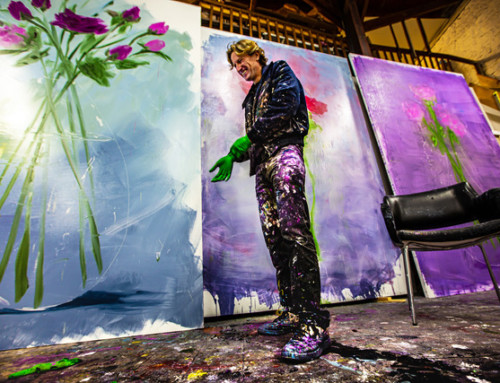Curated By, galerie Emmanuel Layr, Vienne
Jusqu’au 3 octobre 2020
À l’occasion de Curated By à Vienne, la galerie Emmanuel Layr présente
PROPAGANDA WOMEN, MAÏA IZZO-FOULQUIER, THELMA HELL, ZELDA WEINEN,
curatée par Lili Reynaud-Dewar et Olga Rozenblum.
After « At the beginning, there is luxury and there is poverty » at Treize in February in Paris, « Propaganda Women » at Gallery Emanuel Layr in Vienna is the second iteration of a series of exhibitions dedicated to the work of Maïa Izzo Foulquier (1991-2019). She worked under different identities, and multiplied aesthetic strategies – using text, image and music – in order to produce a highly personal and moving critique of patriarchy, institutions and norms. Maïa Izzo-Foulquier, who, after studying political science, trained at École de la Photograhie in Arles, and then at Villa Arson in Nice, primarily used photography as her main medium, documenting her emotional life and that of her friends and encounters, creating narrative structures directly related to her personal and social experiences. She described those structures as highly performative : ” My books, photographs, videos, collages and texts are visual devices. They are my evidences. They report experiences in which representation is primarily envisioned as an action, a performance.” She also put under scrutiny her aesthetic influences, such as Antoine d’Agata, Wolfgang Tillmans or George Tony Stoll, and engaged into a feminist critique of male dominance, which led her to literally use herself more politically, and more physically too, through the practice of sex work and the defence of sex workers’ rights. At that point in her life, Thelma Hell, a brilliant activist and an incisive writer and chronicler, took shape and set herself a fundamental space in the work of Maïa. At about the same time, another decisive figure emerged : that of Zelda Weinen, a feminist rap icon, singer and producer. Rapping texts imbued with melancholia and spleen, but also highly political, Zelda Weinen performed gigs wearing a wedding dress. This rap act, the videos, the lyrics, the musical production, led her to address complex questions surrounding the perception of her racial and cultural identity : Maïa’s is a mixed race person with a white looking skin, a condition she described as “the double peine” ; a term referring to the French legal practice of not only pronouncing carceral punishment for delinquent acts but also of depriving those same persons it targets of a number of their civic rights, thus excluding them further from society and from belonging to any community. White passing is also at the core of her film “Fuck Endemol”, a satire of our era of proliferating self-representation through social media and screens, and a critique of racism and racial stereotypes inherent to French social structures.
While « At the beginning, there is luxury and there is poverty » took her photographic practice as a starting point – albeit an enduring one : Maïa never stopped taking pictures – in her prolific and complex practice, “Propaganda Women” aims at exploring how the different bodies and strategies of Maïa, Thelma and Zelda come together into a single powerful voice, a politicized hybrid with ambitions of social change. In our text about her show in February we wrote : “Meeting Maïa Izzo-Foulquier and working with her was a revelation”. And indeed we could repeat it for every of her shows to come, and for describing the experience of exploring her work further and further.
+ d’infos : https://www.emanuellayr.com/
Crédit photo : Maïa Izzo-Foulquier, Sans titre, photographie, impression pigmentaire, 40 x 60 cm







